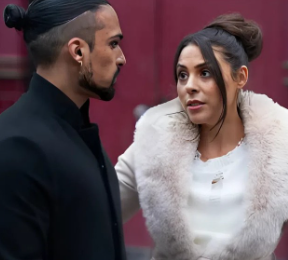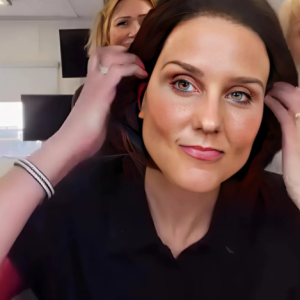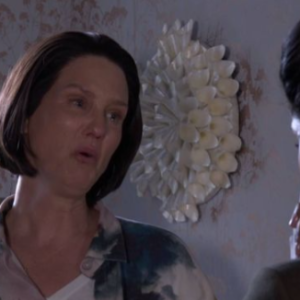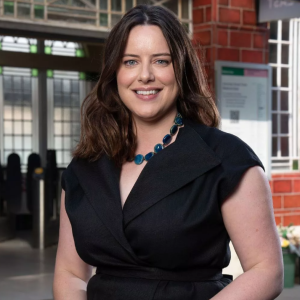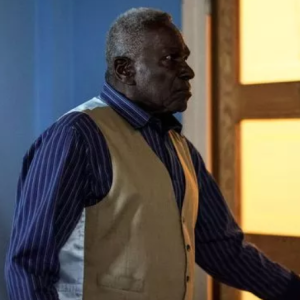Actor James Bye, widely recognised for his decade-long portrayal of the iconic Martin Fowler in the BBC’s flagship soap opera, EastEnders, is embarking on a significant new phase of his career. Having indelibly stamped his mark on one of television’s most beloved characters, Bye is now poised to return to the stage, taking on the distinguished role of Mr. Darcy in a new theatrical adaptation of P.D. James’ mystery novel, Death Comes to Pemberley, set to premiere this September at the Theatre Royal Brighton.
Reflecting on his time in Walford, James Bye acknowledges the profound impact his role as Martin Fowler had on his life. “Martin Fowler changed my life, no question,” he stated, a sentiment that resonates with countless actors who dedicate years to a single, high-profile character. His departure from the soap was met with a mix of sadness and a sense of accomplishment. “It was sad to say goodbye, of course it was, and in an incredibly special episode, something I’ll never get to do again in my life. But I like taking risks. It was definitely the right decision.”
The storyline surrounding Martin’s exit was particularly dramatic and kept tightly under wraps to maximise its impact. James alluded to the surprise factor: “No one suspected that affable Martin, the archetypal bloke-next-door, was going to lose his life. Which is what made it so effective.” This comment highlights the show’s propensity for sudden, high-stakes twists, often placing beloved characters in perilous situations that test the very fabric of their existence and the audience’s emotional resilience. While Martin Fowler, the character, has remained a fixture in EastEnders through various plot developments, Bye’s reflection points to a storyline that, at the time, felt like a definitive and potentially fatal end for the character, designed to elicit maximum emotional response from the dedicated fanbase.
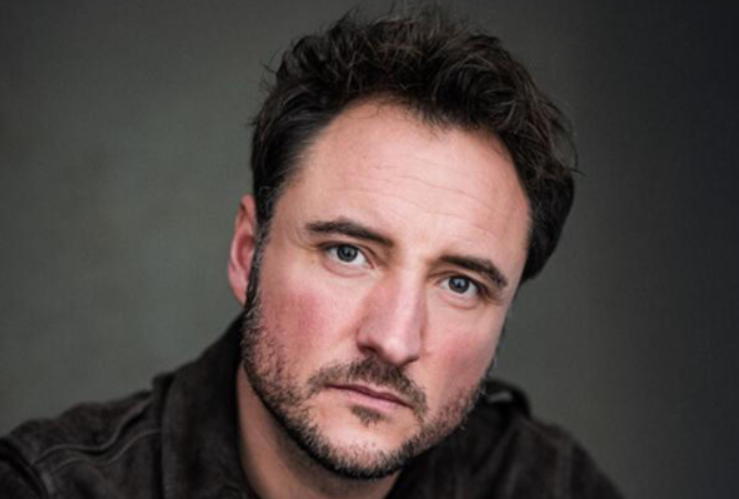
Central to Martin Fowler’s tenure in EastEnders was his tumultuous, yet enduring, relationship with Stacey Slater, played by the equally talented Lacey Turner. Their love story has been one of the soap’s most compelling and long-running narratives, characterized by a series of dramatic highs and devastating lows. From their initial blossoming romance in their youth, through their first marriage, the shock revelation of Stacey’s affair with Max Branning, her struggles with bipolar disorder, and their subsequent, often fragile, reconciliations, Martin and Stacey have navigated an unparalleled “switchback journey.”
“The audience had always loved him and Stacey as a couple, through all their ups and downs,” James explained. “Suddenly, it looked like a happy-ever-after for them and then it was snatched away. Theirs wasn’t a perfect relationship but then whose is? That’s what made it so real. They’d been on this switchback journey and finally, or so it seemed, they’d found their happy place.” This encapsulates the essence of what made their on-screen partnership so believable and relatable to millions of viewers. EastEnders thrives on portraying the complexities of working-class life, where relationships are rarely simple, mirroring the imperfections and resilience found in real-world connections. The constant cycle of despair and hope, often punctuated by moments of genuine tenderness, ensured that Martin and Stacey remained at the heart of the show’s emotional landscape, their bond tested by everything from family feuds to criminal enterprises.
The emotional intensity of the specific “live episode” that marked this significant turning point for Martin’s character was an experience that left a lasting impression on both James and Lacey. EastEnders has a long history of incorporating live or semi-live broadcasts for major anniversary celebrations or pivotal storyline climaxes, a challenge that few other productions undertake. These episodes demand an unparalleled level of professionalism and emotional commitment from the cast, as there is no room for error or retakes. The pressure is immense, but it often yields some of the most raw and memorable performances in the show’s history, bringing an almost theatrical immediacy to the small screen.
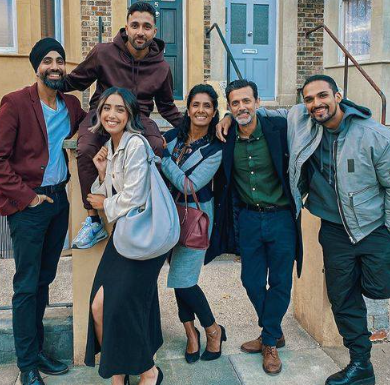
The rehearsal process for this particular episode brought out unexpected depths of emotion. James recalled: “When the scenes were played back so we could see how we were doing, there clearly wasn’t enough jeopardy. What was missing was my continuing pain, my anguish.” He vividly described how Lacey Turner, despite her professionalism, struggled to contain her emotions. “I don’t think she’ll mind me saying but Lacey was upset throughout all the rehearsals. She couldn’t hide the fact she was sobbing. I told her she didn’t need to cry all the time. She said: ‘I can’t help it. I’ve got no control.’”
Then, in a testament to the power of their on-screen bond and the depth of their off-screen friendship, James himself was overcome during the final rehearsal. “At the final rehearsal, I lost it. When Stacey walked away to talk to the paramedic, it was like an out-of-body experience. She came back and I had tears pouring down my face. When I spoke again, I didn’t think anyone would be able to understand what I was saying through my choking sobs. But the director was delighted. ‘That’s how we’ll do it on the live episode,’ he said.” This raw, unscripted emotion transferred directly to the screen, providing viewers with a truly visceral and unforgettable moment that underscored the profound connection between the characters and the actors portraying them. After the intense final scene, the two actors shared a private moment, a testament to their shared experience. “Stacey and I lay there for five minutes when it was all over and then fell into each other’s arms, for a cry and a cuddle. It had been very much a team effort and we’d got through it together.”
Despite the emotional intensity of the broadcast, James humorously admits he has yet to watch the live episode himself, simply stating, “Well, I just haven’t had the chance.” This lighthearted admission perhaps highlights the sheer exhaustion and emotional toll such performances take, often making it difficult for actors to revisit them.

Now, James Bye looks forward to his new challenge on stage as Mr. Darcy in Death Comes to Pemberley. The play, a murder mystery set six years after the events of Jane Austen’s Pride and Prejudice, offers a departure from the gritty realism of Walford. The transition from a fast-paced, demanding soap opera schedule to the world of live theatre is a common path for many soap veterans, offering new artistic challenges and a different working rhythm. For James, it also provides an opportunity to balance his career with his family life. With four sons aged between nearly two and eleven, commute times are a consideration. “Most of the dates are commutable from where we live in Buckinghamshire. So I’ll be able to take the kids to school although not bath them in the evening,” he noted, offering a glimpse into the everyday logistics of an actor’s life.
Away from the camera, James’s personal life story is equally charming. He met his wife, Victoria, in a Sainsbury’s car park in London’s Ladbroke Grove, a serendipitous encounter during his early days as an “out-of-work actor” taking on promotional gigs. “Towards the end of the day, this gorgeous woman walked past and started showing real interest in what I was doing,” he recounted, unaware that Victoria was a mystery shopper for the same company. Their “flirty banter” led to him giving her his phone number, setting the stage for their future together. They married in 2012 and renewed their vows in 2023 in St Lucia, joined by their three eldest sons, a symbol of their enduring love and commitment.
Looking to the future, James remains open to diverse opportunities, embracing a less structured approach to his career. “I’ve never been a planner, maybe stupidly so. I’m a bit of a gambler,” he admitted. He harbors ambitions beyond the stage, keen to explore new formats. “It would be great to do one of those big Netflix dramas. Let’s see what comes along.” Ultimately, James Bye views his time on EastEnders not as a limitation, but as a powerful springboard. “The way I see it, Martin Fowler set me up for anything that might now come my way. You’re looking at a happy man.” His journey from the bustling streets of Walford to the grand stages and potentially global streaming platforms is a testament to his talent, resilience, and the transformative power of a truly defining role.
